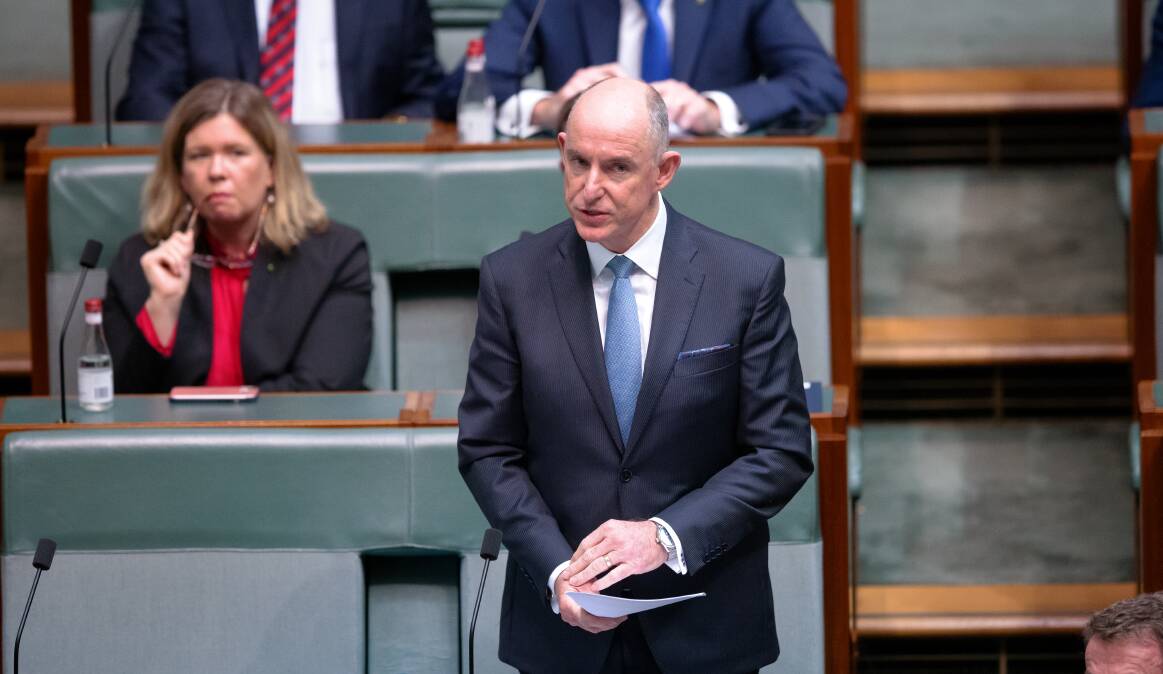
Former government services minister Stuart Robert has denied he wanted to "double down" on the robodebt scheme after receiving advice it was unlawful, hitting back at the former secretary of his department.
Appearing at the robodebt royal commission on Thursday, Mr Robert said he acted immediately to dismantle the scheme upon receiving advice from the Solicitor-General that it was unlawful on November 6, 2019.
He also rejected "in the strongest possible terms" he was unsupportive of ending the program as legal advice was sought over the course of 2019, and that he needed to be convinced to do so.
The program was established in 2015, and falsely claimed that social welfare recipients had misreported their fortnightly incomes to the government, based on annual pay data from the tax office.
Affected people were notified they owed up to thousands of dollars in some cases, with little information about why, leading to the government claiming $2 billion in payments from 433,000 people.
Mr Robert announced the scheme would be scrapped in May 2020, and a class action lawsuit was settled out of court for $1.8 billion.
Mr Robert's account to the royal commission diverged from that of the former secretary of the Department of Human Services, Renee Leon.
Ms Leon told the royal commission on Tuesday that upon presenting Mr Robert with the Solicitor-General's advice, and urging that the department apologise and discontinue the scheme, he responded with words to the effect of: "We absolutely will not be doing that. We will double down."
Asked for his response to this by counsel-assisting Angus Scott, Mr Robert responded: "I don't recall that".
"It would be completely inconsistent with the fact I've got the Solicitor-General's advice, advice I wanted, I've taken it to the prime minister, the prime minister has agreed to an urgent ERC," he said.
'Simply unconscionable': Robert criticises former department secretary
Ms Leon had also received Australian Government Solicitor advice in March 2019 recommending the Solicitor-General's advice be sought, but said she would have told the minister "orally" in June, because the department did not want to put it in a written brief.
"I don't recall that," he said, adding that the document would have been cabinet in confidence anyway.
"If the secretary had a brief that made it clear that the entire premise of a $4.4 billion program that had been running for two-and-a-half years under her watch, at least three-and-a-half years for the government, that it was now unlawful.
"The fact that that would not be given to me in writing is simply unconscionable. And I've chosen my words carefully, how could a brief like that not be given in writing?"
Mr Scott also queried why Mr Robert had continued to defend the scheme in several media interviews from mid-2019, after he had said he sought legal advice from the Solicitor-General.
"If I've got a personal opinion, my next step is to seek the appropriate advice until such time as that arrives," Mr Robert said.

"I remain a cabinet minister, and I'm responsible for holding the cabinet line, which is what I've done in the interview," he said referring to an ABC interview in which he said the government had a legal responsibility to recover overpayments.
Mr Scott responded that it was one thing "to be circumspect about a matter for which you've sought legal advice, I suggest it's quite another thing to represent a degree of confidence in the program that you appear to have represented in this interview."
The former government services minister maintained he was just doing his job.
"Ministers are required to defend the government's programs as part of cabinet solidarity, regardless if they agree with them or not, as by the way as the public service," Mr Robert said.
"I've implemented many things that I passionately disagree with, but I'm still required as a minister to represent them and defend them.
And that's what I've done here, regardless of my personal sense of belief."







